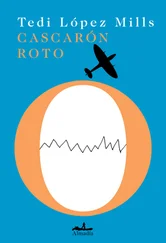Magnus Mills - Screwtop Thompson
Здесь есть возможность читать онлайн «Magnus Mills - Screwtop Thompson» весь текст электронной книги совершенно бесплатно (целиком полную версию без сокращений). В некоторых случаях можно слушать аудио, скачать через торрент в формате fb2 и присутствует краткое содержание. Год выпуска: 2010, Издательство: Bloomsbury, Жанр: Современная проза, на английском языке. Описание произведения, (предисловие) а так же отзывы посетителей доступны на портале библиотеки ЛибКат.
- Название:Screwtop Thompson
- Автор:
- Издательство:Bloomsbury
- Жанр:
- Год:2010
- ISBN:нет данных
- Рейтинг книги:5 / 5. Голосов: 1
-
Избранное:Добавить в избранное
- Отзывы:
-
Ваша оценка:
- 100
- 1
- 2
- 3
- 4
- 5
Screwtop Thompson: краткое содержание, описание и аннотация
Предлагаем к чтению аннотацию, описание, краткое содержание или предисловие (зависит от того, что написал сам автор книги «Screwtop Thompson»). Если вы не нашли необходимую информацию о книге — напишите в комментариях, мы постараемся отыскать её.
Screwtop Thompson — читать онлайн бесплатно полную книгу (весь текст) целиком
Ниже представлен текст книги, разбитый по страницам. Система сохранения места последней прочитанной страницы, позволяет с удобством читать онлайн бесплатно книгу «Screwtop Thompson», без необходимости каждый раз заново искать на чём Вы остановились. Поставьте закладку, и сможете в любой момент перейти на страницу, на которой закончили чтение.
Интервал:
Закладка:
“What’s getting in?” he shouted across me.
“Eh?” replied his mate.
“You said something was getting in!”
“Yes!” came the reply. “For the whole night, I shouldn’t wonder!”
They both glanced towards me, apparently to seek my opinion on the matter, so I gave a judgemental nod of agreement and the pair of them appeared quite satisfied.
Most of the time we had this road completely to ourselves. Occasionally, however, a blurred set of lights would struggle past going the other way, indicating that we weren’t the only people trying to travel in such dreadful weather. The rainwater was now practically bouncing off the tarmac, with great surges of spray being thrown up by our wheels as we ploughed southwards through the darkness.
After another mile or so a movement ahead and to the left caught my eye. Twirling round and round in the wind was a revolving sign that marked the entrance to a transport café. On top of it was a metal flap bearing a single word: CLOSED. Next moment we’d passed it by, and as the deserted roadhouse disappeared behind us I realised I hadn’t eaten for hours. I’d managed to buy a box of individual fruit pies and a carton of milk round about four o’clock, but since then I’d had to concentrate so hard on getting a ride that I’d completely forgotten about food. Now my hunger was returning with a vengeance, and I felt a rush of disappointment as it dawned on me that all the cafés were more than likely shut for the night.
Fortunately my two companions were more familiar with this road than I was, and the CLOSED sign triggered off a conversation between them about when and where we were going to stop and eat. This was carried out in the normal way, with many interruptions of “You what?” and “Eh?” but stuck as I was between them I was able to learn quite a lot about our prospects for getting a good meal, or ‘bait’ as they called it.
Apparently there was a choice of two places. The first was an establishment known as The Tiger Lily, which, despite its name, had no connection whatsoever with China or Chinese cuisine. This came as a relief as my appetite was veering strongly towards steak-and-kidney pie and chips, rather than noodles. The Tiger Lily, it seemed, was renowned amongst lorry drivers (and their mates) as being the place to get a meal quick and cheap at any time of night. It never closed, which was presumably the reason its proprietor Charlie never had time to shave, bath or even wash. My two comrades spent a considerable amount of time exchanging jokes about Charlie’s bodily hygiene. All the same they felt a certain bond of loyalty towards the man because they’d known him since before ‘the accident’. What exactly had happened wasn’t clear, but as I sat listening I began to form a picture of a one-armed (or perhaps one-legged) cook attempting to manage an all-night café single-handedly while wearing a heavily-stained apron. Privately I hoped that The Tiger Lily would not be our next port of call.
The alternative, I soon discovered, was a commercial restaurant called Joy’s, run by a woman of the same name. This Joy apparently served up the most delicious meals imaginable, in the cleanest possible conditions, but from what I could gather ruled her customers with a rod of iron. Most of the lorry drivers on this route were actually afraid of her. Not only did she make them wipe their feet as they came in the door, but she forbade anyone from buttering their bread on the table rather than the plate, or from stirring sugar into their tea with the wrong utensil. She was a former beauty who’d had several husbands, all of whom were known personally to my two friends, but all of whom were now dead.
“Very harsh woman!” concluded the driver at the end of a long debate. Then he remembered that Joy’s was always closed on Thursday nights when she attended her Highland Dancing Club.
“It’ll have to be The Tiger Lily!” he announced.
After another twenty miles or so a glowing light appeared at the roadside, and a moment later we were turning in. As the lorry’s engine fell silent it struck me that these two men would at last be able to hold a conversation without each having to yell at the top of his voice.
Yet ten minutes later, as they both sat munching their pies, mushrooms, chips and peas, neither of them uttered a single word.
9.Half as Nice
Auntie Pat had enjoyed a rich and colourful past, although she probably hadn’t enjoyed it quite as much as she should have. Nowadays she preferred the trappings of an ‘ordinary’ existence. Accordingly, when she popped in for a cup of tea she seemed just like a normal auntie: she was pleasant, humorous and without fail considered the needs of others before her own. True, she was very attractive and shapely. Even as youngsters we could see that. Yet nobody would have guessed that she had once been famous. During the liberated decade she was a member of the pioneering all-girl vocal group, The Katkins, who’d had four top-twenty hits in a row. Following that she’d gone on to be one of the most in-demand session singers in the country, appearing on numerous well-known recordings. In other words, Auntie Pat had tasted stardom. In recent years, life had become much quieter.
She wasn’t our real auntie, by the way. She just happened to live nearby, and Auntie Pat was what we’d always called her. Born Patricia Elspeth Stephens, she was known throughout the world of pop music by her stage name, “Peeps’ (later changed temporarily to ‘Peppy’). Sometimes she’d come round while we were watching Top of the Pops , and occasionally they would show old black-and-white clips from years gone by. Suddenly, smiling for the cameras, would be a youthful Auntie Pat with her co-performers, instantly recognisable by their trademark ‘pile it high’ hairstyles. Also the shortest skirts imaginable. Their hits all used the same template: songs about loneliness that you could dance to. They also shared a common theme. Their first disc was ‘BABY, COME RUNNING BACK TO ME’, a minor triumph which only just scraped into the chart at number nineteen. It was enough to attract the public’s attention, however, and they quickly followed up with ‘BABY, COME BACK SOON’. This did much better, as did the seminal ‘HOW LONG, BABY, HOW LONG?”.
There then ensued some dissent within the group as they began to squabble about the musical direction they were taking. It was the usual problem: one of the girls (not Auntie Pat) wanted to be recognised as leader of the outfit, rather than as merely one third of a trio. Only after several months had passed did they release ‘HE CAME AND WENT’. It got as high as number twelve and paid the bills, but the end was now clearly in sight. As soon as the song dropped out of the charts the group split up; they’d missed the chance to record the album which might have saved them from obscurity.
The four singles had all been produced by Auntie Pat’s former husband, the legendary Michael ‘Dwight’ Gardner, whom she married very young. Theirs was a stormy relationship, due mainly to Dwight’s unpredictable nature. He had a very chequered history, to say the least, and was reputed to have made and lost his fortune several times over. Convicted for armed robbery whilst still a teenager, Dwight studied electronics in jail and at the end of his sentence found employment as a sound engineer with a record company. Very quickly he moved into production, scoring some success, and subsequendy crowning himself ‘the high priest of rhythm’. He also fancied himself as a vocalist, and it was his jealousy of Auntie Pat’s sublime tones that ultimately soured their marriage. He had proposed to her not long after The Katkins drifted into his sphere of influence, and in the beginning they had been happy. After the group’s demise, however, his attentions seemed to focus elsewhere. She left him when he began beating her up regularly.
Читать дальшеИнтервал:
Закладка:
Похожие книги на «Screwtop Thompson»
Представляем Вашему вниманию похожие книги на «Screwtop Thompson» списком для выбора. Мы отобрали схожую по названию и смыслу литературу в надежде предоставить читателям больше вариантов отыскать новые, интересные, ещё непрочитанные произведения.
Обсуждение, отзывы о книге «Screwtop Thompson» и просто собственные мнения читателей. Оставьте ваши комментарии, напишите, что Вы думаете о произведении, его смысле или главных героях. Укажите что конкретно понравилось, а что нет, и почему Вы так считаете.












